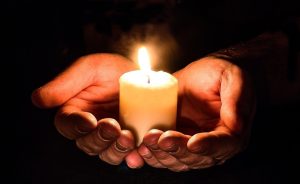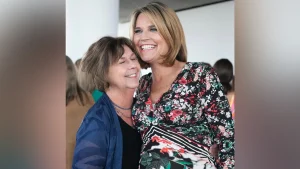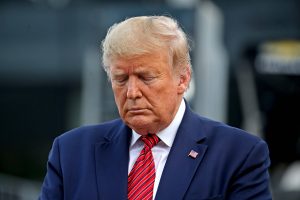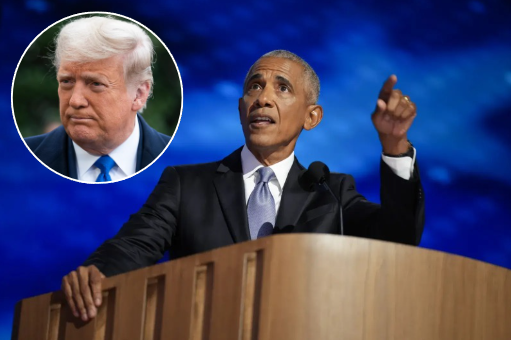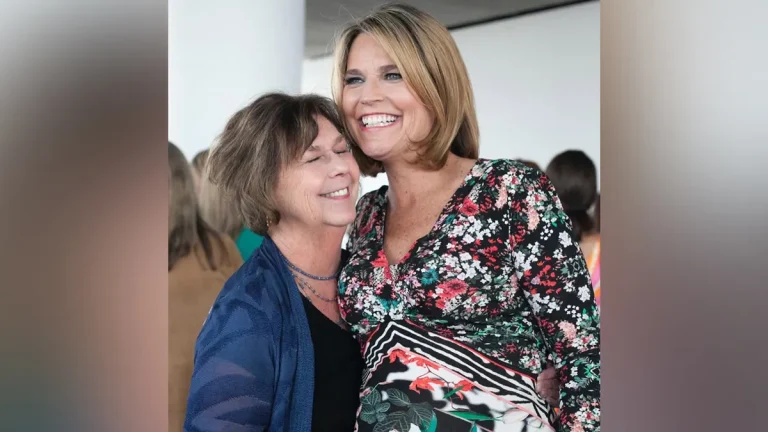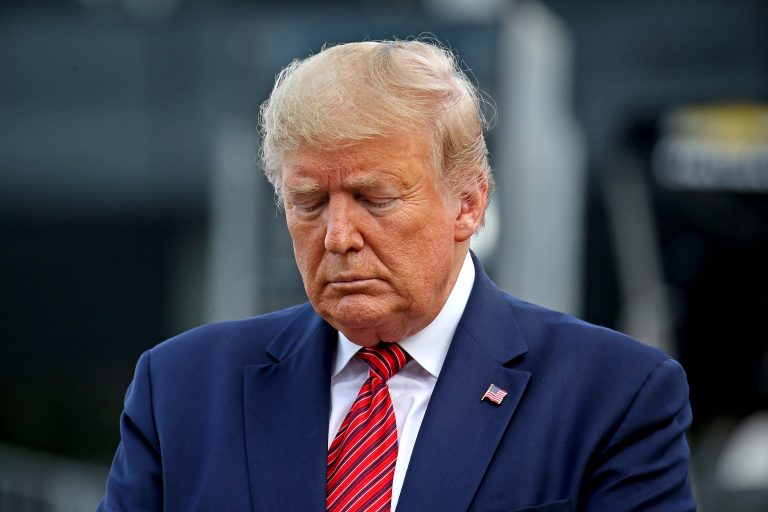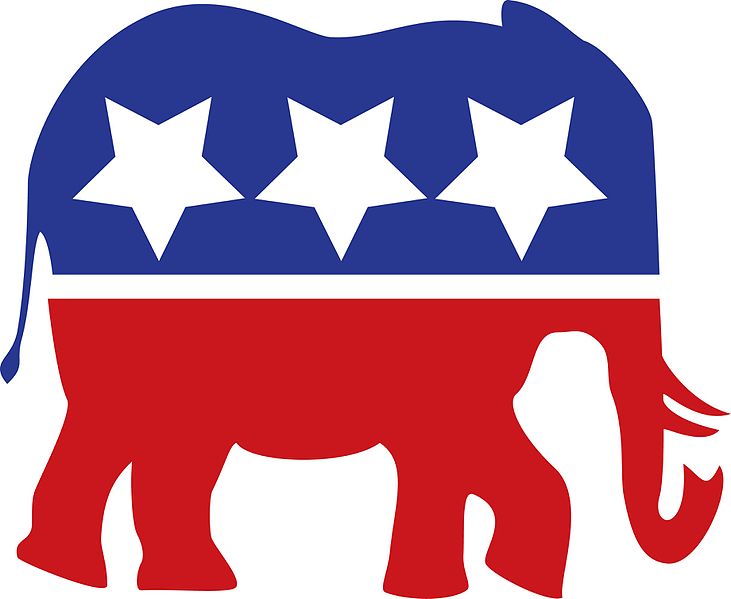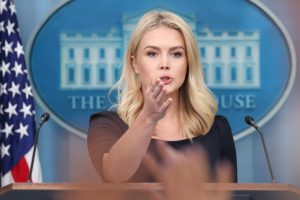As Election Day draws near, political tensions are running high across the United States. And in a surprise appearance that has sparked intense conversation nationwide, former President Barack Obama delivered a bombshell admission about the current Trump administration that has left many stunned.
Speaking before a packed rally in Newark, New Jersey, on Saturday (November 1), the 44th President of the United States took the stage to support Mikie Sherrill, the Democratic candidate in the razor-tight race for New Jersey governor. Sherrill is currently clinging to a slim lead in the polls—one that sits within single digits—over her Republican opponent Jack Ciattarelli. With the stakes at an all-time high, Obama’s appearance was meant to energize Democratic voters and secure a much-needed turnout boost in the final stretch.
But the former president had more on his mind than just endorsing a gubernatorial candidate. What followed was one of his most direct and stinging critiques of the current administration to date—an admission that even he, one of Trump’s sharpest critics, was not fully prepared for how far the current president would go.
“It is not as if we didn’t see some of this coming,” Obama said in his impassioned address. “I will admit. It is worse than even I expected, but I did warn you all. You can run the tape.”
The crowd erupted in shock and applause as he continued.
“And by the way, he warned you too, because he said what he would do,” Obama said, reminding listeners that Trump often made no secret of his intentions during his campaign. “But the fact is there were plenty of people who voted for Trump and Republicans anyway. And it wasn’t because they wanted to give up the right to free speech or see public health systems torn down, but because they were understandably frustrated with inflation and gas prices and the difficulty of affording a home and worries about their children’s future.”
The message was clear: many Trump voters were driven by economic anxiety, but Obama suggested they got far more—something far darker—than what they bargained for.
From there, the former president launched into a detailed and sobering critique of Trump’s policies, particularly on law enforcement, immigration, and civil liberties.
“We’ve got a president who deployed the national guard in American cities and claimed to be stopping crime waves that don’t actually exist,” Obama said, referencing Trump’s use of military force during peacetime—often against protests or perceived threats—actions that many critics have described as authoritarian.
But Obama didn’t stop there. He zeroed in on the chilling reports of ICE agents in unmarked vans conducting immigration raids across major cities.
“We’ve got masked ICE agents in unmarked vans pulling people in off the streets, including U.S. citizens, on the suspicion that they don’t look like real Americans.”
Then came the line that sent icy shivers down the spines of even seasoned political analysts:
“It’s like every day is Halloween except it’s all tricks and no treats,” Obama quipped, referring not only to the timing of his speech—just one day after Halloween—but to the real-life horrors that have allegedly unfolded in cities like Chicago and Los Angeles during aggressive immigration enforcement sweeps.
His criticisms of Trump didn’t end in Newark, either.
Later that same day, Obama traveled to Norfolk, Virginia, where he spoke on behalf of Abigail Spanberger, another Democratic candidate in a key gubernatorial race. There, he continued his criticism, turning his attention to what he suggested were the president’s misplaced priorities.
“As for the president, he has been focused on critical issues like paving over the Rose Garden so folks don’t get mud on their shoes, and gold-plating the Oval Office and building a $300 million ballroom,” Obama said, taking aim at Trump’s lavish and highly publicized White House renovations.
“So Virginia, here’s the good news. If you can’t visit a doctor, don’t worry, he will save you a dance.”
The moment wasn’t just a light-hearted jab—it was a barbed reminder of the ongoing federal government shutdown which, as of Saturday, had surpassed the one-month mark. The government has been shuttered since October 1, with no resolution in sight. Democrats are demanding that protections for public health—especially subsidies for health insurance—be extended in any government funding agreement. Trump, meanwhile, has insisted on a rollback of what he calls wasteful spending, blaming Democrats for blocking what he labels necessary cuts.
Obama’s scathing remarks landed at a critical moment. The upcoming election this Tuesday, November 4, will serve as a bellwether for the political climate heading into 2026, as Democrats attempt to solidify gains in local and state-level elections while Republicans try to push through key battleground states in hopes of regaining momentum.
New Jersey is one state where Democrats are cautiously optimistic. Sherrill, a former Navy helicopter pilot and relatively moderate Democrat, currently benefits from a significant voter-registration advantage—nearly 860,000 more Democrats than Republicans are registered in the state. However, recent polling has painted a more nuanced picture.
A Suffolk University poll released earlier this week put Sherrill four points ahead of Ciattarelli—comfortably within the margin of error but still indicative of a solid lead. Yet a separate poll from Emerson College and The Hill found the race essentially neck-and-neck, with Sherrill only one point ahead, 49 percent to 48 percent.
Micah Rasmussen, director of the Rebovich Institute for New Jersey Politics at Rider University, cautioned against premature celebrations.
“The question is whether or not Republicans are doing enough this time to completely breach it or partially breach it,” Rasmussen told Mirror US. “I think even among the most nervous of Democrats, there’s no question that Republicans have to have a very big Election Day in order to be able to overcome what could be as much as a 250,000 or 275,000 vote-margin for Democrats at this point.”
The situation in Virginia looks slightly more favorable for Democrats. Abigail Spanberger, a former CIA officer and current member of the House of Representatives, is believed to be holding a comfortable lead over her Republican challenger, Winsome Earle-Sears. Recent polling suggests Spanberger is up by 14 percentage points—an encouraging sign, but one that Democrats say still requires high turnout to translate into an electoral win.
Meanwhile, as Obama was rallying Democrats in Virginia, Trump himself was nowhere near the campaign trail. The President took off to Mar-A-Lago over the weekend, prompting further criticism that he is more focused on leisure, real estate, and personal business ventures than addressing the rapidly deteriorating situation in Washington.
The contrast between the two presidents—one still fighting in the trenches of public policy, and the other retreating to resort life—was on full display this weekend. And it didn’t go unnoticed by voters, supporters, and detractors alike.
While cities like Chicago continued with their Halloween celebrations over the weekend, despite reports of intensified ICE presence, the national mood has grown significantly more somber. What was once viewed by some as exaggerated political rhetoric is now being seen through a darker, more credible lens. Reports of undocumented people—and even some U.S. citizens—being picked up, detained, or deported without due process have spurred protests, condemnations, and legal challenges across the country.
Obama’s warnings, delivered with passion and unmistakable urgency, seemed to consolidate what many political analysts have been observing for months now: the stark shift in American governance under Donald Trump—a shift marked by widespread fear, uncertainty, and the erosion of institutional norms.
Yet, in a rallying cry meant to inspire hope even in the midst of political turmoil, Obama ended his speech the way he began—as both a voice of reason and a messenger of urgency.
“There is a lot of noise right now,” he said, his voice rising. “A lot of anger. A lot of fear. But there’s also a lot of good. And a lot of people who want to make this country better. And that starts with all of us doing our part. Voting. Organizing. Speaking up. We can’t afford to sit this one out. Not now. Not ever.”
With just days left until the election, it remains to be seen whether Obama’s powerful words will be enough to tip the scales for Democrats in New Jersey, Virginia, and beyond. But one thing is clear—this is no ordinary election cycle. And the stakes, as Obama himself noted, are higher than most Americans realized.
Whether the chilling realities he described will lead to a political course correction, or whether they will be further entrenched, now rests in the hands of the voters.
The countdown to Tuesday has never felt more urgent.

Emily Johnson is a critically acclaimed essayist and novelist known for her thought-provoking works centered on feminism, women’s rights, and modern relationships. Born and raised in Portland, Oregon, Emily grew up with a deep love of books, often spending her afternoons at her local library. She went on to study literature and gender studies at UCLA, where she became deeply involved in activism and began publishing essays in campus journals. Her debut essay collection, Voices Unbound, struck a chord with readers nationwide for its fearless exploration of gender dynamics, identity, and the challenges faced by women in contemporary society. Emily later transitioned into fiction, writing novels that balance compelling storytelling with social commentary. Her protagonists are often strong, multidimensional women navigating love, ambition, and the struggles of everyday life, making her a favorite among readers who crave authentic, relatable narratives. Critics praise her ability to merge personal intimacy with universal themes. Off the page, Emily is an advocate for women in publishing, leading workshops that encourage young female writers to embrace their voices. She lives in Seattle with her partner and two rescue cats, where she continues to write, teach, and inspire a new generation of storytellers.

